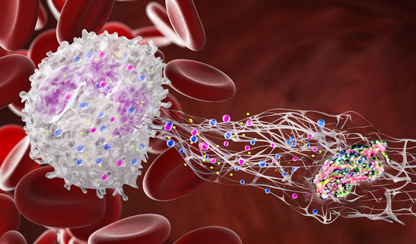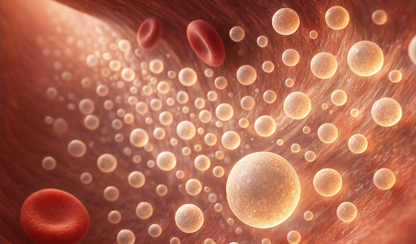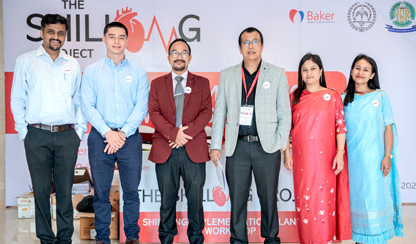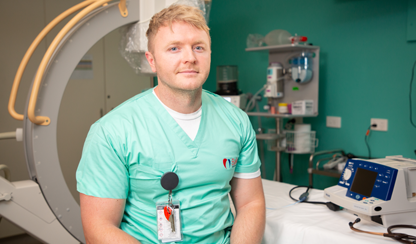27 January 2022
Media release
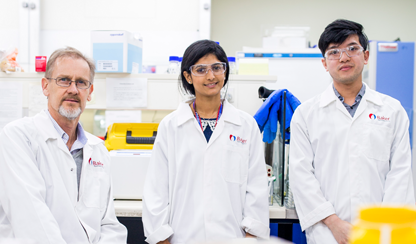
Boosting important lipids (fats) in our body could reduce our genetic risk for late-onset Alzheimer’s disease, with Melbourne scientists now working on a dietary supplement as a preventative approach.
Published in Alzheimer's & Dementia: The Journal of the Alzheimer's Association, a new study shows that changing your metabolism could reduce your genetic risk of Alzheimer’s disease.
The study’s senior author, Head of the Baker Institute’s Metabolomics laboratory, Professor Peter Meikle, said the findings combined what we know about genetics — the predisposition to certain diseases like Alzheimer’s that we have from birth — with the growing understanding of how our metabolism plays a role in driving disease.
The most common gene associated with late-onset Alzheimer's disease is called apolipoprotein E (APOE), and it has three common forms: e2, e3 and e4.
Most Australians are born with only the e3 form, which carries a neutral risk of developing Alzheimer’s. But people with an e2 form (about 15% of the population) have a lower risk and those born with e4 (about 25%) have a higher risk.
“How these genetic variants modulate risk of Alzheimer’s disease has not been conclusively demonstrated, but it is certain that lipid metabolism plays a core role,” Professor Meikle said.
“While you cannot change your genetics, you can change your metabolism through your diet. So even if you do have a high genetic risk for Alzheimer’s, our research suggests this may be reduced by increasing your levels of important lipids called plasmalogens.”
In analysing more than 6000 human samples from Australian and US longitudinal studies, Professor Meikle’s team found that the group with lowest level of plasmalogens had less than half of those with the highest level.
The team also identified that higher levels of plasmalogens, or related lipids, were responsible for up to 30 per cent of the e2 protective effect.
“We don’t fully understand what dictates an individual’s natural plasmalogen levels, but we want to bring everyone up to that higher level, and we think that can be done through dietary supplementation,” Professor Meikle said.
He believes plasmalogens can be boosted through the supplementation of a natural lipid found in high levels in breastmilk and shark liver oil.
His team is working to develop a safe, sustainable, and low-cost supplement in the lab, based on this natural lipid, with the hopes of a product ready for testing by the end of 2022.
“Dietary supplements like these are important to deliver in a targeted way. Future clinical trials will provide direction on their effectiveness and who could benefit the most,” Professor Meikle said.
“But given the global scale of Alzheimer’s disease, we see a simple lipid supplement as something that could potentially help millions.”
Global rates of Alzheimer’s disease are expected to reach 81 million by 2040 and there is a significant unmet need around risk assessment, diagnosis, prevention, and treatment.
It’s hoped that this type of oral supplementation may also help with the prevention of other common metabolic diseases such as fatty liver disease and heart attacks, where Professor Meikle’s team has also determined plasmalogens play a protective role.
“Someday soon we could be getting our plasmalogen levels checked, just like a regular cholesterol check,” Professor Meikle said.
This study was carried out in collaboration with researchers from the Alzheimer’s Disease Metabolomics Consortium — part of the Accelerating Medicine Partnership for Alzheimer’s Disease Initiative funded by the National Institute on Aging — led by Professor Rima Kaddurah Daouk at Duke University. As well as collaborators at Edith Cowan University, the Menzies Institute, the University of Melbourne, and the University of Western Australia.
For further information or to organise interviews please contact:
Tracey Ellis
T: 03 8532 1514
M: 0433 781 972
E: tracey.ellis@baker.edu.au


